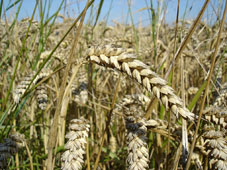
Georgia to receive 13,000 tonnes of the US wheat
By Veronika Malinboym
Wednesday, January 13
The United States Department of Agriculture (USDA) sent an additional 13,000 tonnes of wheat and 4,000 tonnes of soybeans to Georgia this month. The US ship has already arrived at the Poti Port today to deliver the cargo. According to the head of the First Deputy Minister of Agriculture, Giorgi Khaniashvili, the USDA does not only help Georgia sustain high standards of food safety and improve the quality of beef and dairy products but also contributes to the overall growth and development of the local companies.
The arrival of the wheat and soybeans for the country’s livestock is the second of the three shipments that were announced under the USDA Food for Progress program. The first shipment was received in December last year when 14,000 tonnes of the high-quality wheat arrived with the US Ocean Grand ship to the seaport in Poti. In 2019, the country imported 30,000 tonnes of wheat from the United States, and this marked the first portion of the imported wheat that Georgia has received from the United States as an independent country. Amidst the outbreak of the global pandemic in 2020, the US Ambassador to Georgia, Kelly Degnan has announced that an additional 27,000 tonnes of wheat would be imported to Georgia in order to assist the country in a crisis response against the COVID-19 pandemic. On top of that, under the $ 14.5 million Food for Progress Program, Georgia received $400,000 for 18 small grant agreements aimed at strengthening the “dairy, beef, and farming sectors” as well as the overall improvement of the food safety standards.
Since 2014, Georgia has largely been depending on the wheat imported from Russia. Despite the strained relationships between the countries, it has been reported that between January- May of 2019, the country has imported 117,000 tonnes of Russian wheat. As the tense relationships between the countries continue to be further strained by the travel ban and the tightening of the Georgian wine export to Russia introduced by Moscow, many economic experts believe that there is a real chance of Russia using Georgia’s dependency on the Russian wheat as serious political leverage over the country. Thus, finding alternative sources of wheat imports can become a feasible damage-control measure.
The wheat that was received this month will be sold on the private market, and the proceeds will be donated to the Agricultural Development Programme.

